Abstract
This article explores some of the potential moral and social ramifications of the Human Genome Project. Research on the human genome is generating important ethical and social questions of at least three distinct kinds. First, what genetic information should be generated, and who should control its dissemination and use? Improved diagnostic techniques such as presymptomatic testing, carrier screening, and prenatal screening can provide information that poses significant ethical problems for individuals, employers and insurance companies, and the medical and counseling professions. Second, what genetic procedures should be employed? The burgeoning ability to manipulate human genotypes and phenotypes through procedures such as gene therapy and enzyme therapy are leading to difficult questions about which manipulations should be permitted and which should be prohibited. Third, how will this new information change lives? Increasing claims about the relationship of genetics to ethically and politically significant traits and behaviors are challenging human self-understanding and the capacity of social institutions to respond adequately.
Full text
PDF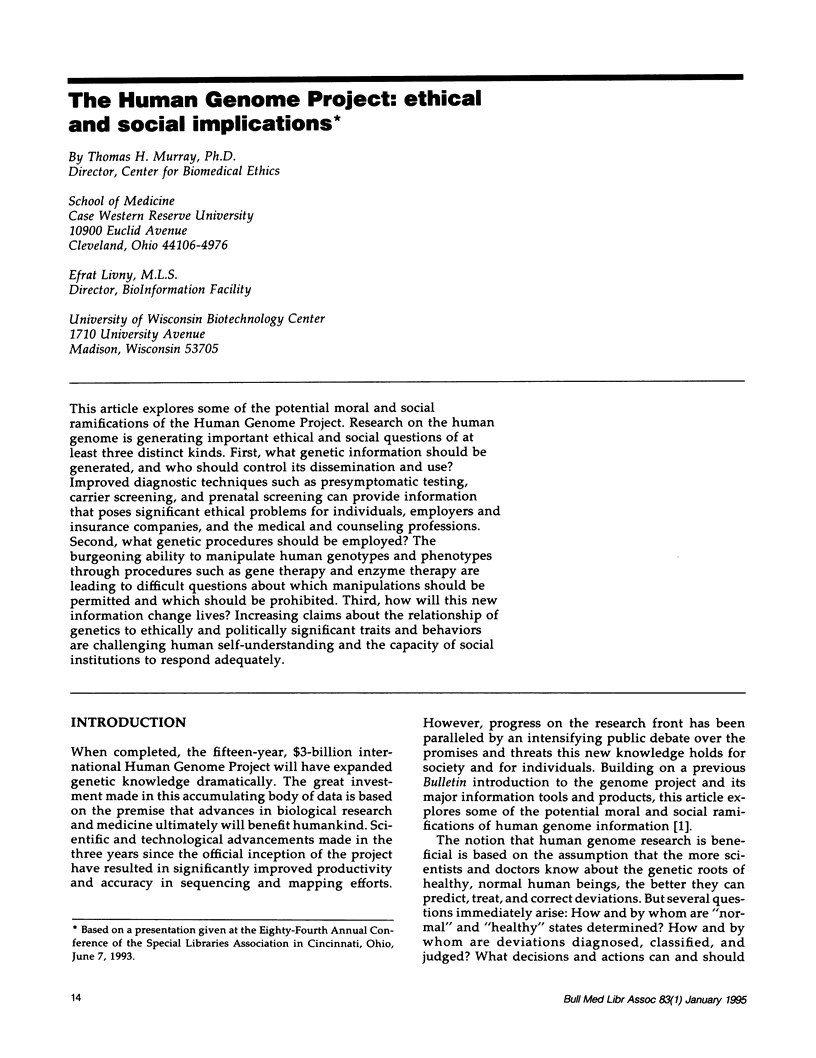
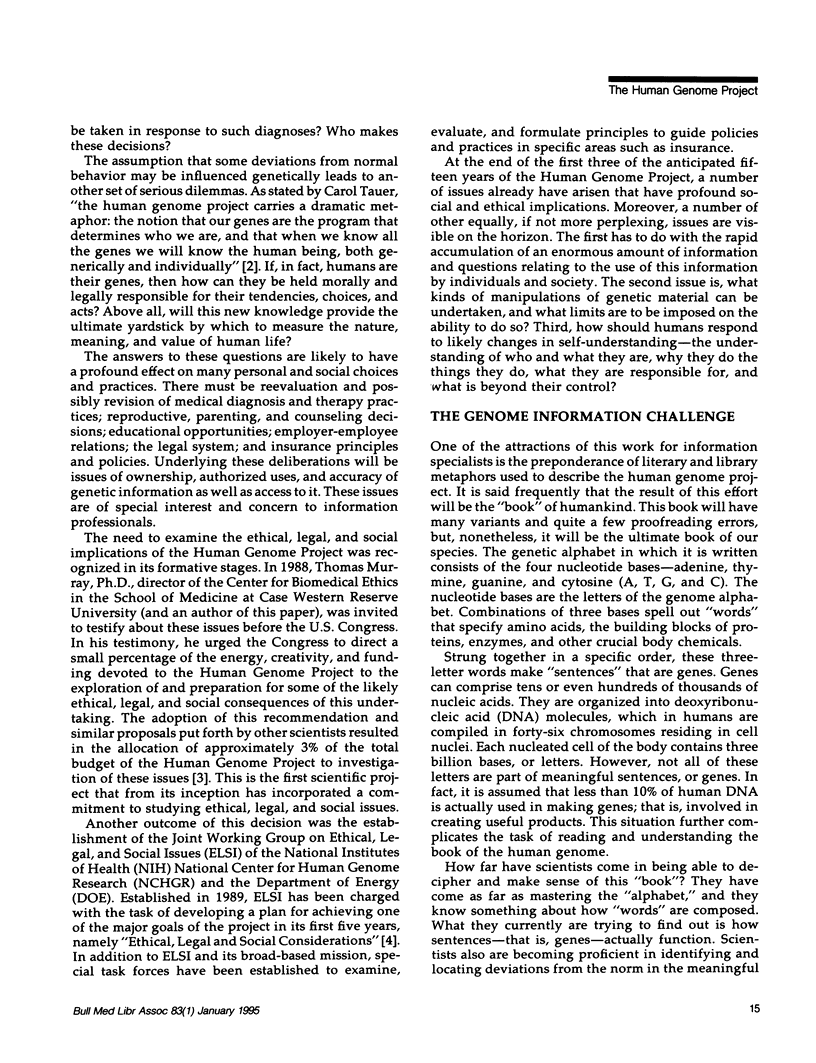
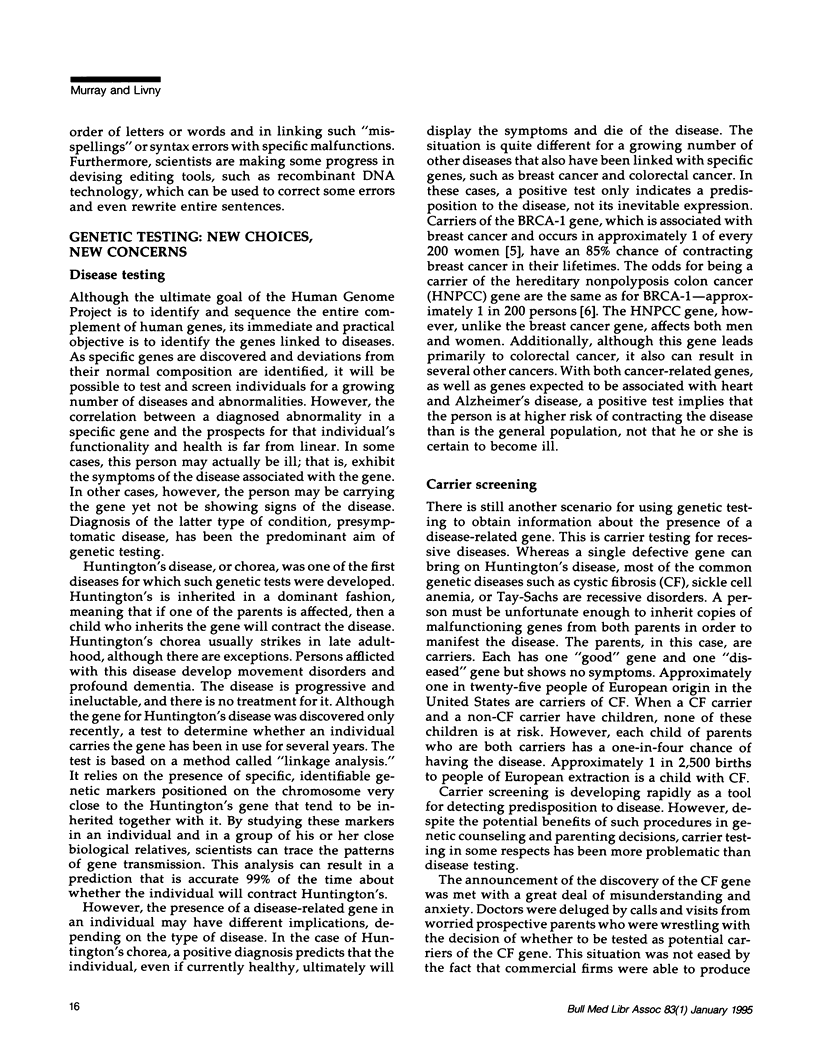
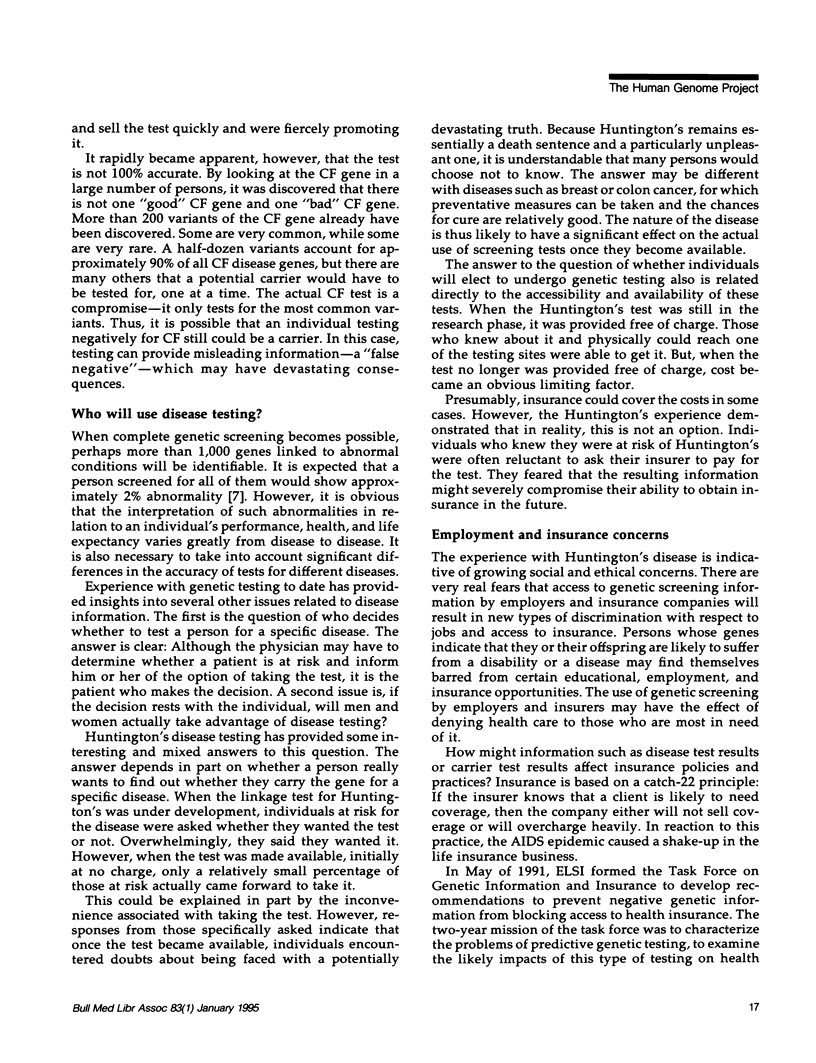
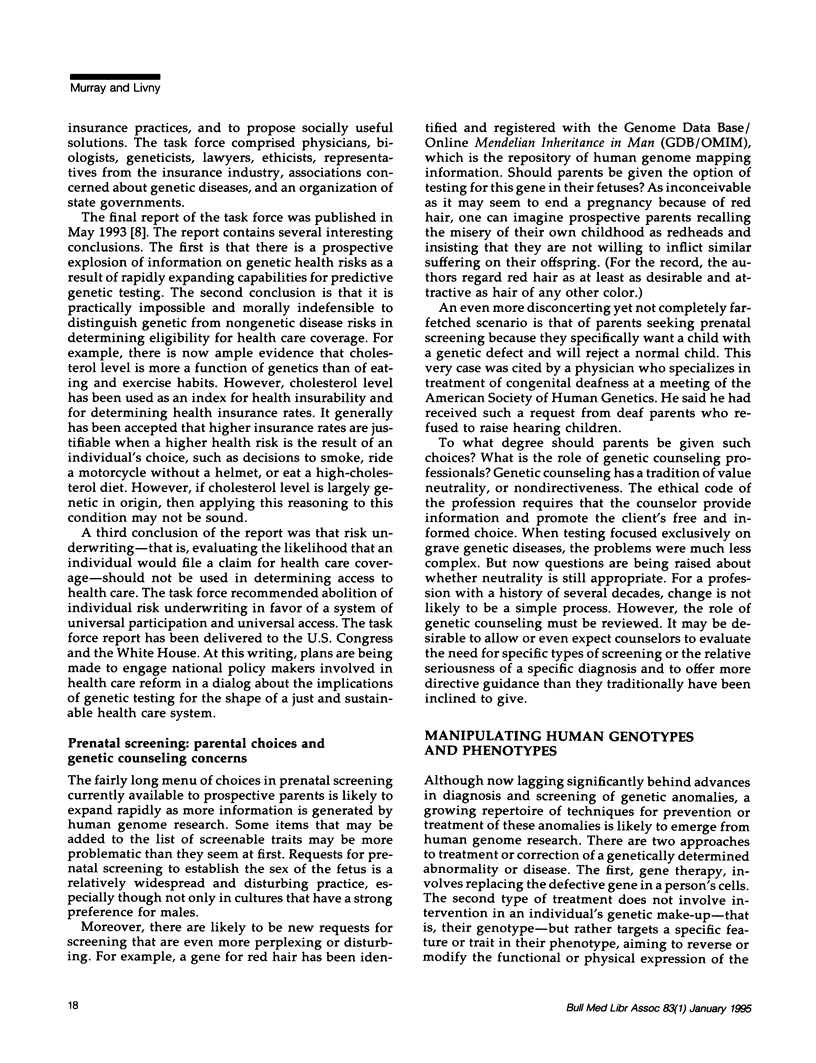
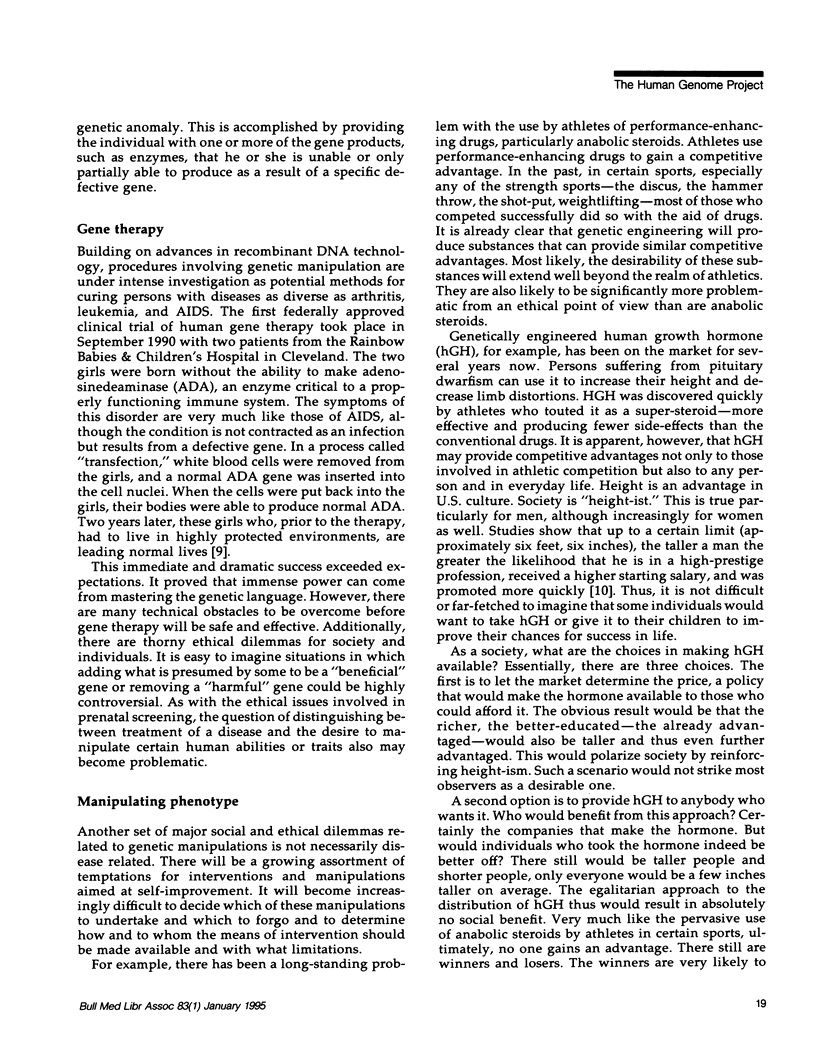
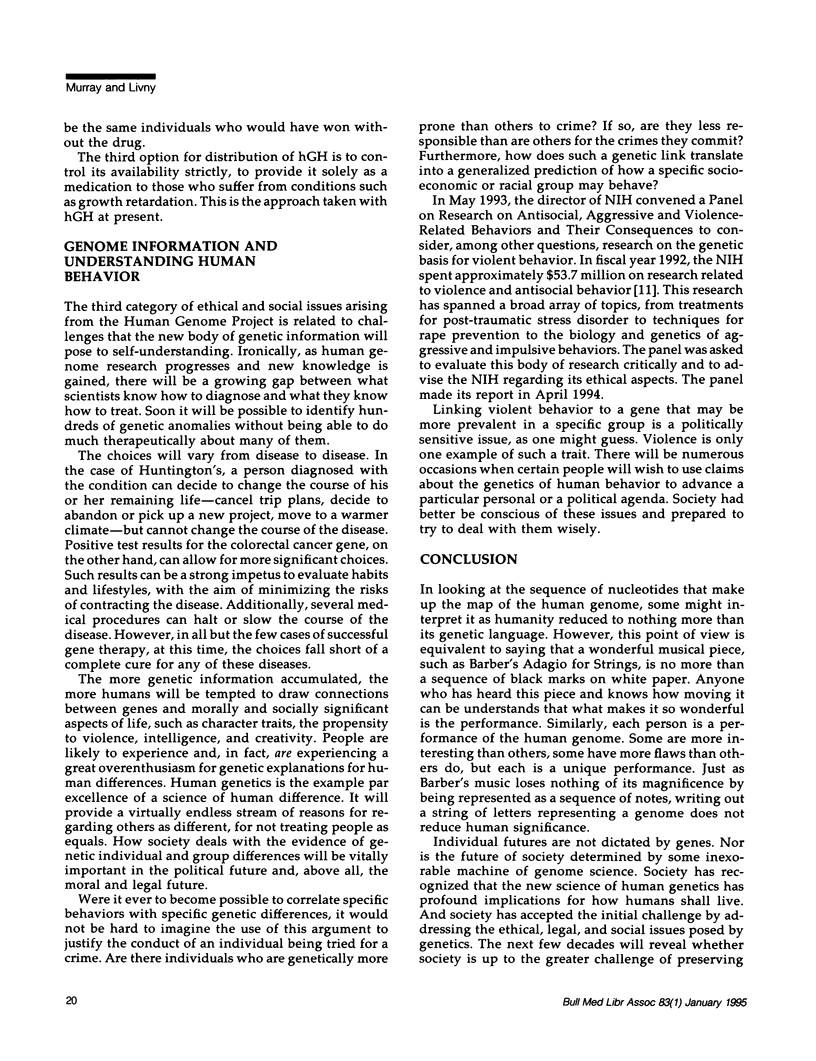
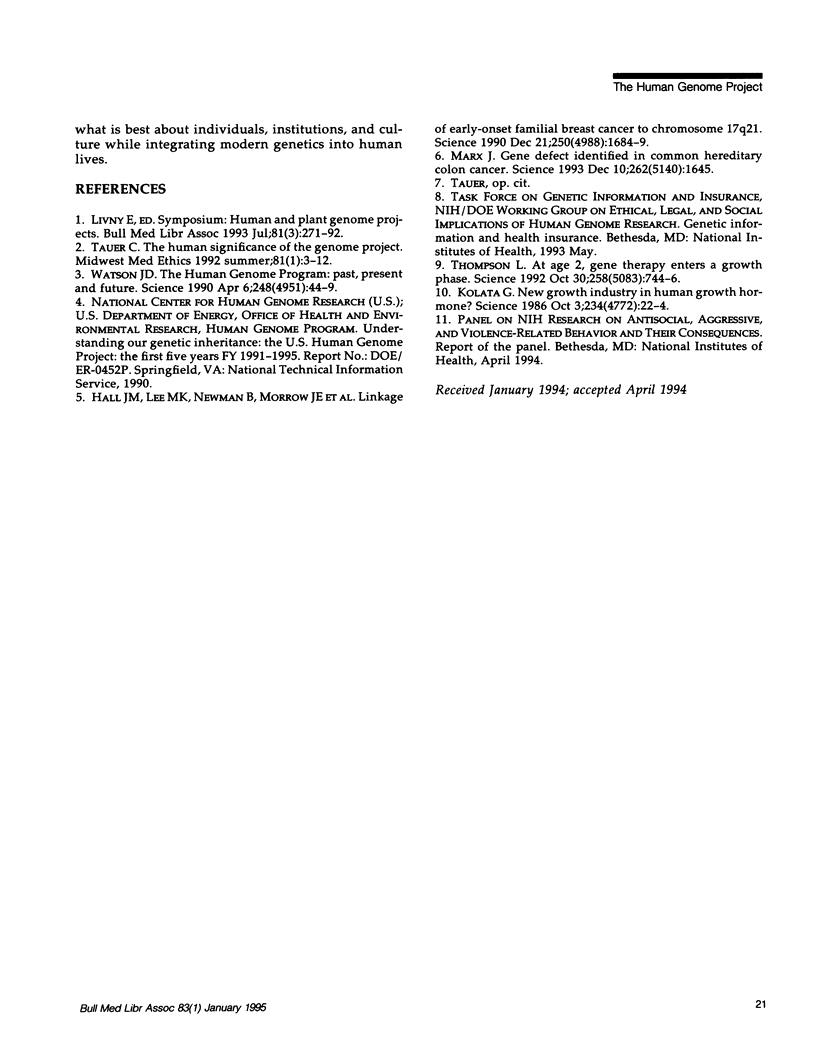
Selected References
These references are in PubMed. This may not be the complete list of references from this article.
- Hall J. M., Lee M. K., Newman B., Morrow J. E., Anderson L. A., Huey B., King M. C. Linkage of early-onset familial breast cancer to chromosome 17q21. Science. 1990 Dec 21;250(4988):1684–1689. doi: 10.1126/science.2270482. [DOI] [PubMed] [Google Scholar]
- Kolata G. New growth industry in human growth hormone? Science. 1986 Oct 3;234(4772):22–24. doi: 10.1126/science.3749891. [DOI] [PubMed] [Google Scholar]
- Marx J. Gene defect identified in common hereditary colon cancer. Science. 1993 Dec 10;262(5140):1645–1645. doi: 10.1126/science.8259507. [DOI] [PubMed] [Google Scholar]
- Tauer C. A. The human significance of the genome project. Midwest Med Ethics. 1992 Summer;8(1):3–12. [PubMed] [Google Scholar]
- Thompson L. At age 2, gene therapy enters a growth phase. Science. 1992 Oct 30;258(5083):744–746. doi: 10.1126/science.1472258. [DOI] [PubMed] [Google Scholar]
- Watson J. D. The human genome project: past, present, and future. Science. 1990 Apr 6;248(4951):44–49. doi: 10.1126/science.2181665. [DOI] [PubMed] [Google Scholar]


